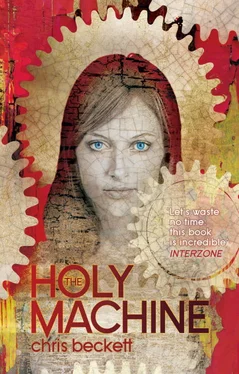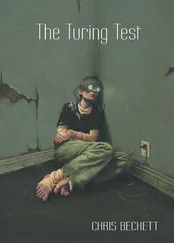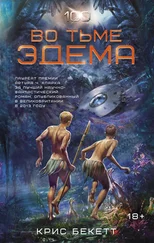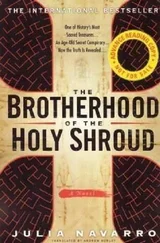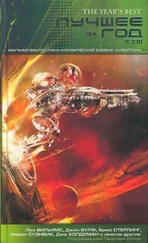‘Hey!’ the officer said suddenly. ‘I know you! George Simling isn’t it? Well, well, small world. We were at school together. Remember me? John Wilson?’
I stared. Yes I did dimly remember him. He hadn’t been very bright at schoolwork. He was what in Illyria was cruelly called a ‘worthy’ – an Illyrian whose citizenship was derived from his parents’ educational achievements and not from his own.
I smiled palely.
‘John. How are you doing? Small world.’
‘Yep. Small country anyway. Strangest report has just come through on the radio. One of those syntec whores has just gone rogue and run off. Imagine that!’
‘Imagine!’
A ten-dollar tip in my passport took me through the Archbishop’s border post without any problems at all and, still hardly believing my own luck, I continued on the potholed Outland road which seemed to head straight towards the mighty wall of the escarpment.
The closer I got to it, the more utterly impenetrable the rock seemed, right up until the moment that it was almost on top of me. And then suddenly a narrow opening came into view. I entered a gorge that had been cut right through that immense mass of limestone over many millions of years by the quiet little stream that still flowed along its base.
As soon as the border posts were no longer visible in my rear view mirror I pulled over and released Lucy from her hiding place.
She looked around her. Her face was blank.
‘There appears to be some malfunction,’ she murmured, ‘please can you contact House Control…’
I laughed. ‘No, Lucy, no, you can forget House Control now. We’re free!’
I put my arms round her and kissed her beautiful face.
She smiled.
‘That’s nice George. Maybe you’d like a hand relief? Or perhaps you’d like me to…’
The road wound along the gorge, next to the small stream that had carved it out. Goats grazed on the grassy bank under small bright trees. Far above us crows wheeled around nests in the crumbling walls of limestone that towered on either side, up and up and up, through all those millions of years of geological time.
Life was bursting out everywhere. There were swallows hunting over the stream, wild irises in the grass, spiders laying traps between the grass stems. Even the rock that dwarfed everything was itself made entirely of the remains of living things settling over millions of years in the warm depths of some tropical Jurassic sea.
This was not a SenSpace dream or a cleverly constructed display in the Beacon. These were the bones of a real planet, spinning in space. This hot sun above was a real star. This was the world. This was life, that strange cross-current in the steady downward flow of entropy: implausible, pointless, but undeniably there .
And I was part of it. The irises, the spiders, even those Jurassic coral polyps were all of them my own distant kin…
But Lucy sat rigid in her seat, looking straight ahead. These cliffs and trees meant nothing to her. She had nothing to compare this scene with, no vocabulary with which to interpret it.
And in a brief, cold moment of insight, which I immediately put out of my mind, I saw that, even if she one day learnt to see it for what it was, even then she would not be part of it. She would not be kin to it at all.
‘Oh Sol, roses, how lovely! You really shouldn’t have! You put yourself to so much trouble!’
‘Don’t mention it my dear! I’ve got to have some excuse to come and see you! How are you? You seemed a little down last time I saw you!’
There are parts of this story that I didn’t discover until a lot later on, and one of them was this:
In the months before I escaped from Illyria, Ruth had fallen in love. She had fallen in love with a handsome Jewish-American man called Solomon Gladheim, who every day visited her with a fresh bunch of flowers.
Mr Gladheim was about fifty-five years old. He had a fine physique and a magnificent head of grey hair. He had the demeanour of one who has been through struggles and looked tragedy in the face but emerged strengthened, setting the past behind him and looking forward to whatever the road ahead might bring. Perhaps he had lost some loved one? Or maybe he had built up a prosperous business out of nothing by sheer hard work, only to have it all taken from him by a crooked business partner in whom he had mistakenly placed his trust? He wouldn’t say. He wouldn’t impose his troubles on others. Whatever had happened to him in the past, Sol Gladheim was never bitter, never self-absorbed. He hardly ever talked about himself at all. And his kind friendly smile was never far away.
He had just one limitation, however, not necessarily a flaw, of course, but nonetheless undeniably a limitation. He was not real. In fact, insofar as he was genuinely human at all, Sol Gladheim was the projection of a small group of people, some male, some female, assisted by an Artificial Intelligence. He was constructed of information. He had no physical existence at all.
Real human beings, let’s admit it, seem to rather elude us Simlings.
‘Hey, Little Rose, you’ve been changing things around again! Where do you find the energy? I was just getting used to that room in pink and white and now you’ve done it in yellow! Nice, though. Very nice indeed!’
Mr Gladheim was one of a number of entities whose job was to patrol the SenSpace Worlds, seeking out the regular users of SenSpace and offering them support, friendship and counselling.
These so-called Help Entities had been created to conform to a number of popular ideas about the characteristics of helpful people which had been established by market research. They were animated by the staff of the SenSpace Corporation’s Welfare Service, an agency which the company had set up to head off public criticism that SenSpace exploited the vulnerable and lonely.
Most of the time Help Entities ran automatically, like Little Rose’s electronic neighbours in the City without End. But they were monitored by duty workers at the Welfare Service, who could assume direct control if needed at any time. From the point of view of the customer, such switches of control were invisible and seamless. Mr Gladheim looked the same, smiled the same way and spoke in the same sort of New York American English whether he was animated by a female welfare worker aged 23, a male worker aged 41, or by a Self-Evolving Artificial Intelligence.
But, real or not, it was Mr Gladheim who saved Ruth’s life four days after my departure. His imaginary knuckles saved her, knocking on the imaginary door of the imaginary house of imaginary Little Rose.
Ruth had fallen in love with him. She talked to him for hours. She told him secrets. She giggled and flirted. Each day she dressed up for him in new imaginary dresses, each morning she racked her brains for things to tell him about.
The Welfare Service, seeing the need, arranged for him to visit daily. It was no bother. He could be in many different places at the same time. They set him to visit daily with bunches of flowers, and to pay attention to her in a style which lay somewhere between indulgent father and respectful suitor, with a dash of professional counsellor thrown in.
He visited the day after my departure, and Little Rose told him she was worried about me. She said I was very selfish and never thought to tell her what I was doing or whether she might need me. Mr Gladheim clucked his tongue.
The day after that, my third day in Epiros, he visited again. Little Rose said she was very tired and Mr Gladheim asked if she was well and if she needed any help. She said no, but a hug would be nice. So he gave her a hug, a fatherly imaginary hug.
Читать дальше
